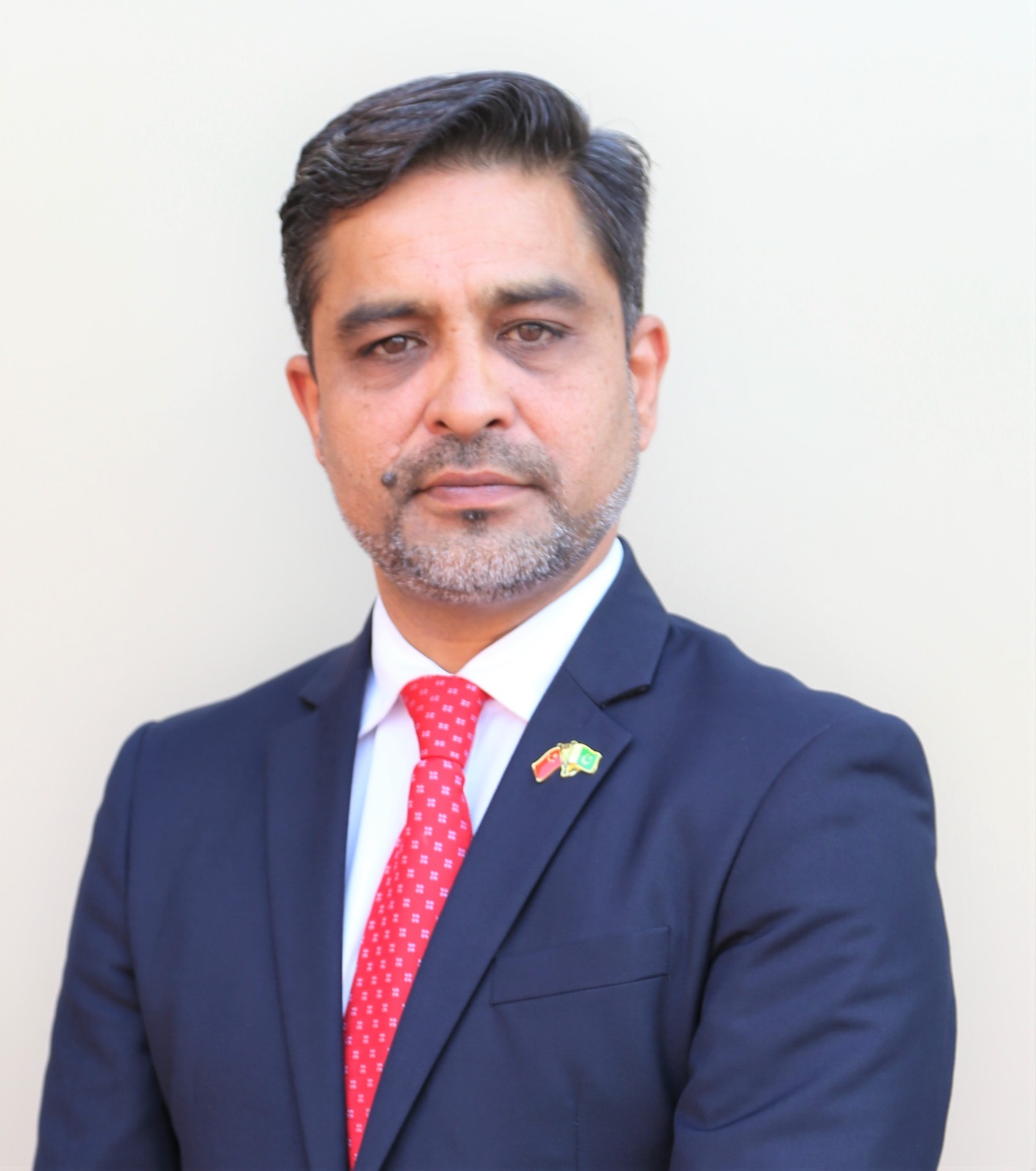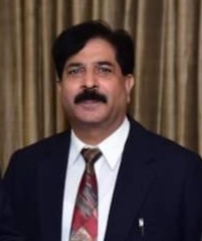Shaping a Healthier Future through the Shanghai Cooperation Organization’s Sustainability Initiatives
By: Dr. Tahir Mumtaz Awan
Author is a PhD from Sun Yat-sen University, China and Youth of Excellence Fellow of China Studies from Zhejiang University, China. He is affiliated with COMSATS University Islamabad, The World Sinology Center of Beijing Language and Culture University, China and Center for Ethnology and Anthropology of Hunan Normal University, China among others. He can be reached on email: awan@mail2.sysu.edu.cn and Twitter: DrTMAwan
In a significant gathering of leaders from the Shanghai Cooperation Organization (SCO), the emphasis on sustainable development and health initiatives took center stage as representatives addressed pressing global challenges. The recent meeting underscored the need for enhanced cooperation among member states, particularly in light of the increasing risks posed by climate change and health crises. This gathering marked a pivotal moment in the SCO’s commitment to fostering a greener and healthier future for its member nations.
The meeting began with a strong affirmation of the importance of implementing the United Nations General Assembly resolutions on “Sustainable Mountain Development.” The leaders declared the period from 2023 to 2027 as a “Five-Year Action for the Development of Mountain Areas,” signaling a unified commitment to addressing the unique challenges faced by these regions. One of the highlights of the session was the recognition of the annual observance of World Glacier Day on March 21. The SCO leaders acknowledged the need for establishing a trust fund to support glacier preservation activities. This initiative aims to mobilize resources for research, monitoring, and conservation efforts in regions vulnerable to glacial melt and its consequences.
As part of their commitment to environmental sustainability, the SCO leaders reviewed the outcomes of the recent meeting of the environment ministers and department heads from member states, held in Astana on May 22, 2024. They stressed the significance of establishing a platform for information exchange in the environmental sector, which was adopted by interested member states during a meeting in Beijing on November 1, 2022. In a concerted effort to address environmental challenges, the leaders emphasized the need for a joint implementation plan for the SCO Green Belt Program for 2024-2026. This program aims to promote environmentally friendly practices, mitigate climate change impacts, and enhance cooperation in the field of ecological conservation. The commitment to combat climate change was further reinforced as leaders vowed to enhance cooperation in addressing climate-related issues. They urged relevant ministries to expedite the establishment of a special working group focused on climate change activities, including the approval of relevant regulations. Furthermore, they discussed proposals for drafting an agreement on cooperation among SCO member states in the field of climate change.
The increasing frequency of natural disasters was a recurring theme during the discussions. The SCO leaders expressed their intention to deepen cooperation among emergency agencies, focusing on monitoring natural disaster risks in real-time. They advocated for the exchange of practical information and best practices to ensure swift responses to emergencies. A pivotal point of the meeting was the reaffirmation of their commitment to implementing the 2023-2025 Action Plan for the Agreement on Assistance in Emergency Response among SCO member states. This plan aims to facilitate coordinated efforts in managing emergencies, ensuring the safety of citizens during crises.
The leaders emphasized the importance of enhancing cooperation in the fields of health and epidemic preparedness. They discussed the outcomes of the SCO Health Ministers’ Meeting held in Astana on March 14, 2024, which focused on preventing and treating infectious and non-communicable diseases. As part of their commitment to improving health systems, the leaders underscored the need for digitalization in healthcare and ensuring access to quality medications. They supported the development of a proposed SCO Medical Association in the format of interested states, which aims to strengthen collaboration in the medical field. The discussions also highlighted the need for cooperation in traditional medicine, as the leaders noted the outcomes of the SCO expert working group meeting on traditional medicine held on November 23, 2023, via video conference. They emphasized the significance of traditional healing practices in complementing modern healthcare approaches.
In their pursuit of social equity, the leaders reiterated the importance of developing further cooperation to eliminate poverty and enhance the welfare of their populations. They highlighted the work of the special working group on poverty reduction and the necessity of fostering a lifestyle conducive to achieving the United Nations Sustainable Development Goals. The discussions also included a review of the results of the SWG meeting held on December 6, 2023, and a thematic expert meeting on September 10, 2024. The leaders emphasized the need for collaboration in poverty reduction programs among SCO member states, aligning their efforts with global initiatives.
The leaders also noted the outcomes of the recent meeting of the SCO Agriculture Ministers, held via video conference on May 29, 2024. They called for further strengthening cooperation in agricultural research, particularly in crop breeding and seed production. This collaboration aims to enhance food security and nutritional standards within the SCO region. As part of their commitment to addressing global food security challenges, the leaders emphasized the importance of supporting resilient and nutritious grain crops. They encouraged efforts in research and development to promote crops such as millet, rice, wheat, corn, and other traditional varieties.
Recognizing the importance of cultural exchange, the leaders voiced their strong support for respecting and preserving traditional values and cultural diversity within member states. They emphasized the need for new interaction formats in education, culture, tourism, and sports to deepen cooperation in the humanitarian sphere. The meeting also underscored the significance of enhancing dialogue among religions and cultures. The leaders emphasized the role of interfaith dialogue in promoting understanding and cooperation among diverse communities.
In a bid to foster unity through sports, the leaders noted the outcomes of the SCO Sports Ministers’ meeting held in Almaty on May 24, 2024. They discussed the establishment of an SCO Sports Organizations Association and the need for a working group to promote physical culture and sports. Furthermore, the leaders deliberated on the proposal to hold the “Silk Road” mini-football tournament in futsal among SCO member states, scheduled for 2025. This initiative aims to strengthen ties through sports while promoting healthy lifestyles among the youth.
As the SCO leaders concluded their discussions, the emphasis on sustainable development, health initiatives, and cultural exchange underscored a collective commitment to addressing the pressing challenges of the modern world. The meeting served as a platform for member states to reaffirm their dedication to cooperation, mutual support, and the well-being of their populations. With the commitment to implementing the discussed initiatives, the SCO is poised to play a pivotal role in fostering a more sustainable and resilient future for its member states and the global community at large. The leaders left the meeting with a renewed sense of purpose, ready to tackle the challenges ahead and build a better future together.



